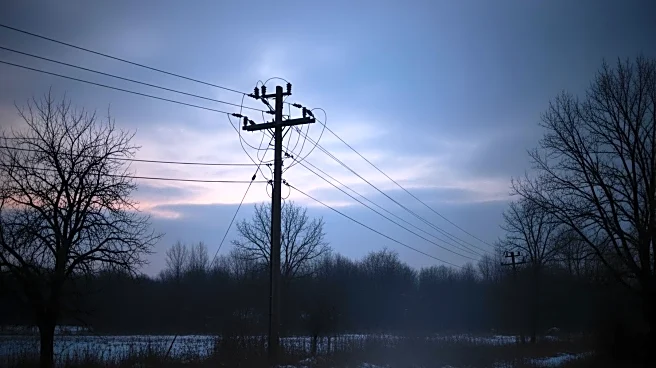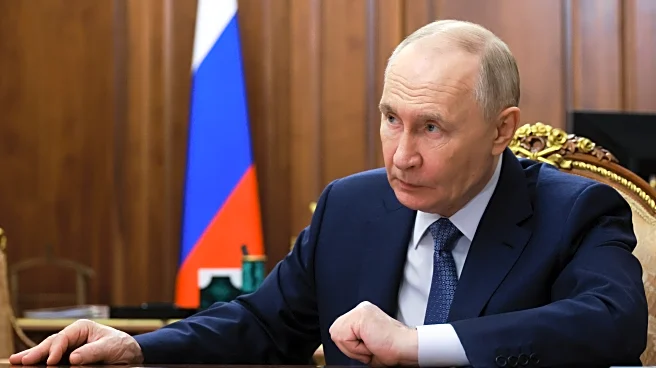What's Happening?
Lindsey Halligan, a White House adviser to President Trump, has been appointed as the interim U.S. attorney for the Eastern District of Virginia. This appointment follows the forced resignation of the previous leader, Erik S. Siebert, who declined to pursue criminal charges against New York Attorney General Letitia James and former FBI director James Comey, both of whom are frequent targets of President Trump. Halligan, who lacks prosecutorial experience, was sworn in by U.S. Attorney General Pam Bondi. The Eastern District of Virginia is a critical office handling national security and terrorism cases, and Halligan's appointment has surprised many within the legal community.
Why It's Important?
The appointment of Lindsey Halligan as interim U.S. attorney is significant due to the sensitive nature of the Eastern District of Virginia, which oversees complex national security investigations. The decision to replace Erik S. Siebert, a career prosecutor, with Halligan, a former Florida insurance lawyer, raises concerns about the politicization of the Justice Department. This move could impact ongoing investigations and the overall integrity of the legal processes within the district. Critics argue that Halligan's lack of experience may affect the office's ability to handle high-stakes cases effectively.
What's Next?
President Trump is expected to submit Halligan's nomination to the Senate for a full term in office. The legal community and political observers will be closely watching the Senate's response to this nomination, as well as any potential changes in the handling of cases within the Eastern District of Virginia. The appointment may lead to increased scrutiny of the Justice Department's actions and decisions, particularly regarding cases involving Trump's political adversaries.
Beyond the Headlines
The appointment of Halligan highlights broader concerns about the influence of political considerations in judicial appointments. This development may prompt discussions about the ethical implications of appointing individuals with limited legal experience to key prosecutorial positions. Additionally, it underscores the ongoing tension between the executive branch and the Justice Department, which could have long-term effects on public trust in the legal system.











